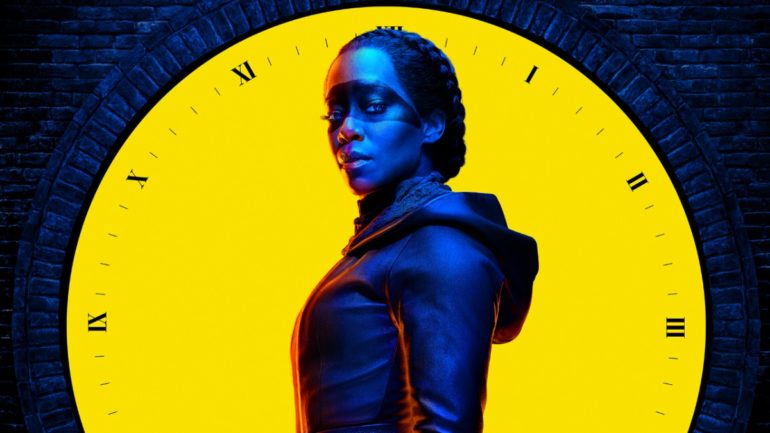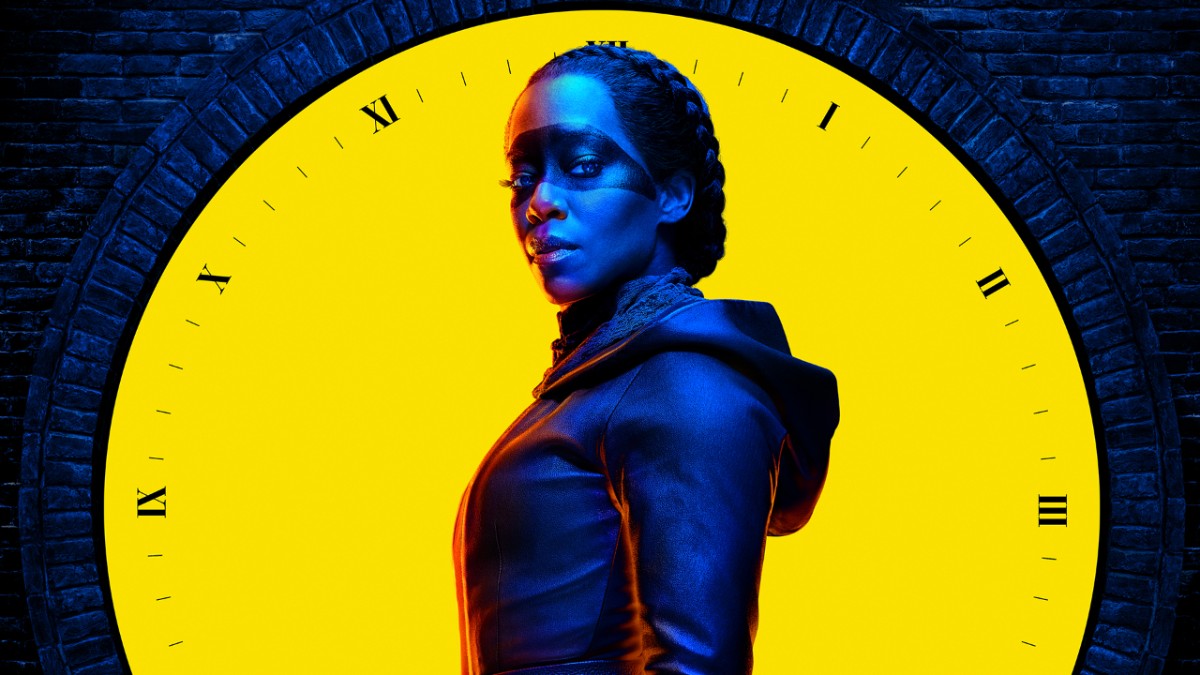If the success of 2008’s Iron Man, Robert Downey Jr.’s career revival, and the subsequent explosion of the Marvel Cinematic Universe could be put down to any one thing, it’s Alan Moore’s Watchmen. Watchmen is what got superhero comics taken seriously. Before that, no adaptation could fully escape the high camp of Adam West’s tenure as Batman.
(Though, speaking of Batman, it must be said that Christopher Nolan’s Batman trilogy can’t be credited to Watchmen’s influence. It owes far more to the one-off comic The Killing Joke, also by Moore.)
So the issue with any sort of adaptation is that you have all the weight of expectation against you. Zack Snyder’s 2009 film version of Watchmen (yes, no surprise that came hot on the heels of Iron Man) played it fairly safe – sticking to the source material pretty rigidly, only trimming that which really was tangential, like the frequent interludes from an in-universe pirate comic, or that which could be easily replaced, like the giant squid.
Strictly speaking, this TV iteration of Watchmen was billed as a ‘remix’ rather than an adaptation, but based on this first episode it’s clearly a sequel of sorts, a continuation of the same universe. And, based on the squid-related evidence, it seems to be following on from the comics, rather than the film.
But it is inescapably a continuation. Writer Damon Lindelhof described the comics as “our Old Testament” – which is underselling it a little, as you could probably muddle through at the very least the Apostles without having read the Old Testament. The same can’t really be said here. Without having either read the comics, or seen Snyder’s film, there’s places you’ll feel lost. To point to the MCU again, mainstream audiences may have a higher tolerance for expanded universes these days – but this is following up on a comic from the 1980s.
For the inexperienced viewer, the squid stuff can perhaps be blithely waved away as part and parcel of this subtly different world, but when they name-check Rorschach, you really need to have seen the original, or at least understood the gist. The show does a manful job of making the imitation masks resemble proto-Klansman hoods, but without any context this seems too much like leaning on historical villain shorthand.
Even if you’re a Watchmen buff, Jeremy Irons comes flying into this at a very oblique angle with absolutely no explanation. This, perhaps, is the other side of stuff like bringing back the squids. Irons’s stuff hints towards the same kind of story-about-stories that the pirate comic was in the original. Still, it is a very odd interlude, especially since it’s set in a Welsh castle while the rest of the show is entirely based in Tulsa, Oklahoma. And if, like me, you live just down the road from stately Penrhyn Castle, this takes on a powerfully uncanny quality. When he’s getting off his horse, all I could think is ‘hey, that’s where the guided tours start!’.
Part of this – perhaps the true intention – is surely to invite speculation as to how exactly he fits into all this. For the serious fan, there’s plenty of opportunity for that throughout the episode. But this is a dangerous game for a TV show to play, as we saw with Westworld, whose writers panicked when the fans picked up on too many of the clues and ended up making the second season too oblique for consumption.
Without the Cold War, the great background conflict of the original, the story’s now glommed onto the eternal mistrust between America’s police and citizenry. In the light of stuff like the Black Lives Matter movement, this is often seen as a specifically racial divide, and since the show kicks off with a recreation of the 1921 Tulsa race riot that’s clearly a factor. However, since this is followed immediately by a tense scene of an African-American policeman stopping a Caucasian civilian, it doesn’t end up quite as – what’s the expression? – black-and-white as one might think.
In the original, the police resented having men in tights trying to muscle in on their racket, which ultimately led to a superhero registration law (that’s right, The Incredibles had its genesis with Watchmen too), but here, they’re working arm in arm. In fact, they’ve conceded enough to the superheroes that now most police also conceal their identities, an act which is in the real world usually limited to elite SWAT-type units.
The title ‘Watchmen’ is of course a play on Juvenal’s rhetorical question ‘who watches the watchmen?’, suggesting that those who are appointed as society’s protectors have nothing in place to stop them abusing their power. This is applicable enough to police forces anyway, but when we join the action here, the Tulsa PD have lost all self-awareness to the point they’re chanting it at the end of meetings.
One positively courageous decision is that we don’t get the standard run-down of who our various masks are, and what their gimmick is (“I’m Paperwork Dan, the paperwork man…I do evil paperwork!“). The gang in the original work had the advantage of drawing heavily upon established DC superheroes, both in terms of image and psychological dysfunctions, but even without that frame of reference, their character tropes came to the fore quickly enough. Newer and less established super-groups, like those of Guardians of the Galaxy and The Boys, are naturally quick off the mark in establishing their major personae. Here there’s less to engage with.
Oh, we see the red guy, and the cat-man, and the bloke with the mirror mask all knocking about the place, but our main focus throughout is on Gina King’s leather nun. Which is interesting, because it was Rorschach – now painted as villain forerunner thanks to his unpleasant fandom, who took the lead in much the same way in the original. But Rorschach’s flaws were obvious, to the point of overbearing, from the off. King finds herself playing a bit more of a gung-ho 24 figure without the edge, busting into houses to knock around bad guys who are definitely evil, and never mind the warrant, all in an uncomplicatedly protagonist-y way. Then it’s home to her loving family for tea.
This is the crux of it. At its core, before any wider questions about geopolitics, society, or what it is to do good or bad, the idea behind Watchmen was that those who choose to dress up in a silly costume and beat the hell out of criminals probably have a few issues of their own. The TV iteration’s been a bit coy around this – King’s violent vigilante, per the show so far, is fine, it’s only those poor fools who took Rorschach too seriously who are the problem. Which is, perhaps, the kind of rose-tinted view you might expect from those who equate the original comics to the Old Testament. No need to watch the watchmen, they know what they’re doing.
Some of the coverage you find on Cultured Vultures contains affiliate links, which provide us with small commissions based on purchases made from visiting our site.


